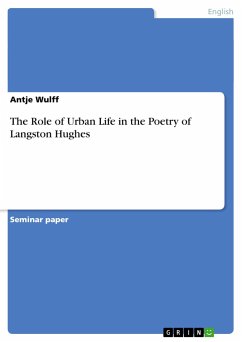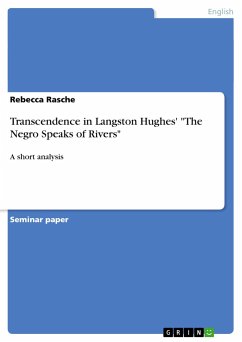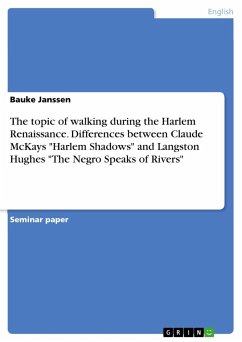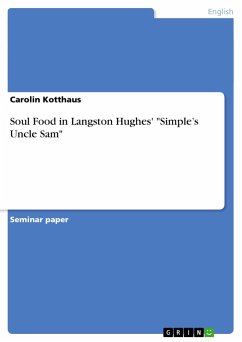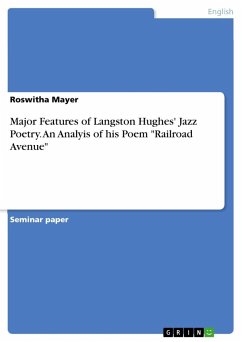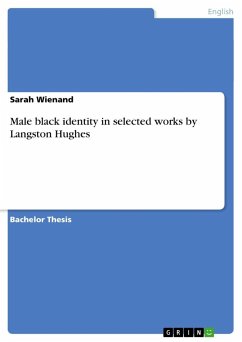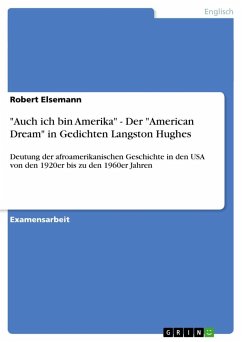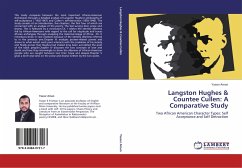Seminar paper from the year 2003 in the subject American Studies - Literature, grade: 1,0, University of Trier, course: The Poetry and Poetics of Langston Hughes, language: English, abstract: Langston Hughes was an urban person. Originally, he came from the rather rural Midwest of the United States, but he adopted the city as his real home very early in life and remained true to it ever since. In doing so, he acted very much in accordance with the zeitgeist of his period, which was hugely influenced by the sweeping processes of urbanisation started off earlier by the Industrial Revolution and the rise of capitalism. Living in a big city represented a completely new experience in American, and indeed human, history. None of the traditional patterns of life could be applied to it without change. Notably, it has been impossible up to now to find a valid and comprehensive definition of the phenomenon of the modern city, which says a lot about the complexity of the issue.The followingessay aims to analyse the way Hughes interpreted the urban phenomenon, for his affinity to the city clearly found expression in his poetry. Although he visited countless cities both at home and abroad, the overwhelming majority of his urban poems deals with life in the Manhattan district of Harlem, which assumed a key role for African Americans at the beginning of the twentieth century and can also be regarded as the centre of Hughes' own life. Viewing Harlem as a microcosm of black urban life and using it as a blueprint in his poetic work, he managed to draw a diverse and multi-layered image of existence in the city. Since, naturally, racial aspects are of particular significance in this context, the following analysis will try to examine the various roles played by urban life for African Americans. Thus, the essay will focus first on the hopes and expectations they associated with the city as a new environment. It will then examine whether and in what way those hopes were actually reflected in the general attitude towards urban life and in its various forms of expression, and whether there might have been less positive feelings as well. If so, it will then be necessary to deal with the problems and difficulties encountered by blacks in the city as they are presented in Hughes' poetry. Here, both spiritual and material (that is, economic) concerns must be considered. Finally, since Hughes did not solely concentrate on the racial aspects of urbanity, the wider and more general human implications of modern urban existence laid out in his poems will be looked at to complete the analysis.

